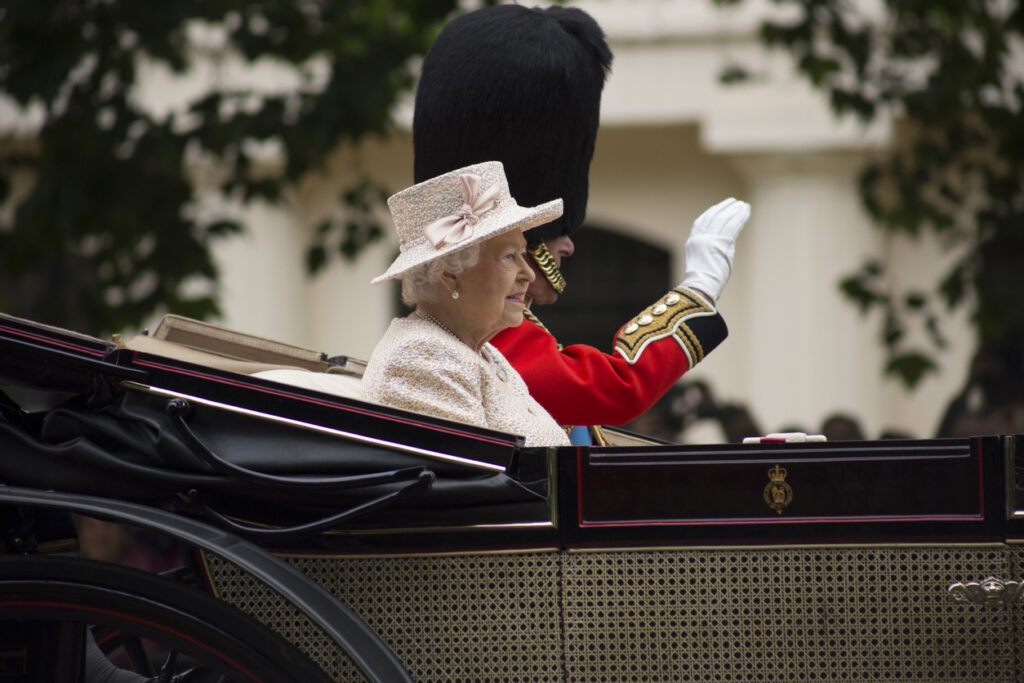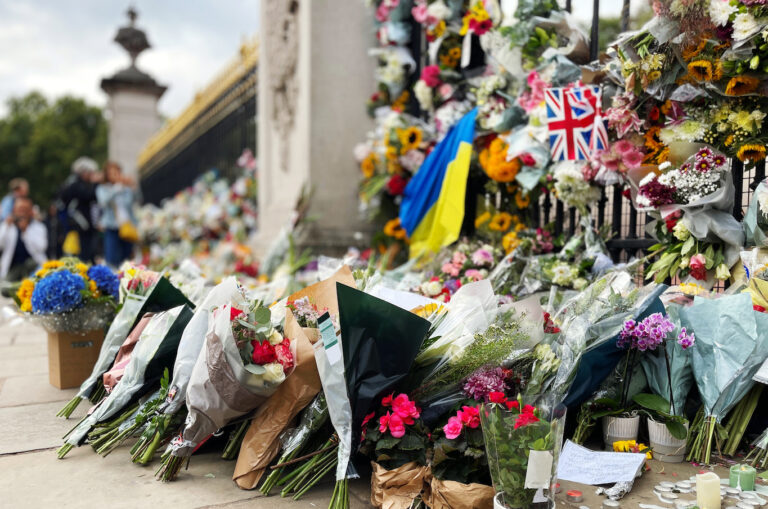On Monday 19th September 2022 the UK said a final goodbye to its longest reigning monarch, Queen Elizabeth II. For many she was an example of true leadership; her reign was an inspiration and the nation became accustomed to her as a reassuring presence, leading the country for over 70 years. It will certainly take some adjusting to life without her.
Zaki Cooper and Nick Loughran MVO are the Co-Founders of Integra and both previously worked for the Royal Household. Zaki was an Assistant Press Secretary to the Queen from 2009 to 2012 with specific responsibility for the Diamond Jubilee. Nick worked in Royal Communications at Buckingham Palace between 2008–2010 and was Deputy Communications Secretary for the Duke and Duchess of Cambridge and Prince Harry working at Kensington Palace between 2010-2016.
Working in these privileged roles, they were able to observe HM at close quarters. The worlds of monarchy and business seem very different at first glance, but there are parallels between the responsibilities and challenges of leadership, whether you’re the Queen or a corporate leader. Here they identify ten features of Queen Elizabeth’s leadership, in style and substance, which any CEO or business leader could learn from.

1. Actions speak louder than words
The Queen fulfilled her duties with incredible devotion over the course of seven decades. This encompassed constitutional responsibilities, such as giving assent to approximately 4,000 Acts of Parliament, the State Opening of Parliament or weekly audiences with her 15 PMs from Winston Churchill at the start of her reign to Liz Truss at the end. In total she has fulfilled over 21,000 public engagements in the course of 70 years, and appreciated the importance of carrying out her job with

duty and care.
2 . Think and Act Global
As the Queen of the UK and 14 other countries, including Australia, Canada and New Zealand, she naturally had a global perspective. She travelled to over 100 countries, on every continent, hosted 112 State Visits to the UK and was Head of the 56-nation Commonwealth. Her knowledge of diplomatic affairs and global issues was vast.
3. Seen to Be Believed
The equivalent of a CEO walking the office corridors, the Queen realised the importance of contact with the public. She reportedly once said “I have to be seen to be believed” and understood the power of meeting people face-to-face, for example on walkabouts during public engagements or through hundreds of Garden Parties, which attracted up to 30,000 guests each year.
4. Happiness Business

The monarchy has played a special role touching people at positive moments in their lives, such as when they received an honour at an investiture or through sending out over 300,000 congratulatory cards to people celebrating their 100th birthdays since 1952. This year’s Platinum Jubilee was the Queen’s fourth and it’s no accident one former courtier described his employer’s role as in “the happiness business.”
5. Consoler-in-Chief
A leader has to be present in time of struggle and need. The Queen appreciated the importance of visible leadership at times of national mourning, such as responding to the 7/7 bombings in 2005 or the special broadcast after the outbreak of Covid in 2020, when she famously reassured the country, “we will meet again.”
6. Never waste a crisis
As to be expected from a 70-year reign, there were some moments of challenge and crisis for the monarchy. When the Royals were criticised for their slow reaction to the Aberfan mining tragedy in 1966 and also faced searching questions following the death of Princess Diana in 1997, in both cases they seemed to internalise the criticism and respond.
7. Media-handling
The Queen famously never gave an interview but understood the importance of communicating visible leadership in other ways that chimed with the mood of the nation, whether through carefully planned public addresses in times of crisis, such as the Vera Lynn reference in her speech to the nation during COVID or unexpected activity that caught everyone by surprise, including the “James Bond” moment for the 2012 Olympics, or this year’s Paddington skit.
8. Purpose and Charity
Through the Queen’s patronage of over 500 charities, and encouraging other Family Members to back different causes, the monarchy has boosted the country’s third sector. The Queen’s and other Royal’s support for charities helped to raise money for good causes and to shape the national conversation around issues such as mental health and youth unemployment, as well as climate responsibility.
9. Servant based leadership
In a message released earlier this year on 6th February, the exact 70th anniversary of her reign, she signed it off “”Your servant Elizabeth R.” The Queen had a deep-estate appreciation that the monarchy is there to serve the people, not the other way round.
10. No substitute for hard work
Considering her advanced age, the Queen maintained an incredible work schedule, granting an audience to PM Liz Truss two days before she died. She led by example by continuing to check her Red Boxes of official papers on most days, and still carried out visits such as to Paddington Station and the Chelsea Flower Show in the last few months.
The Queen’s leadership was a byword for service, stability and continuity. She had a track record that any CEO would be enviable of, and we can all draw lessons from her 70 years of leadership.

